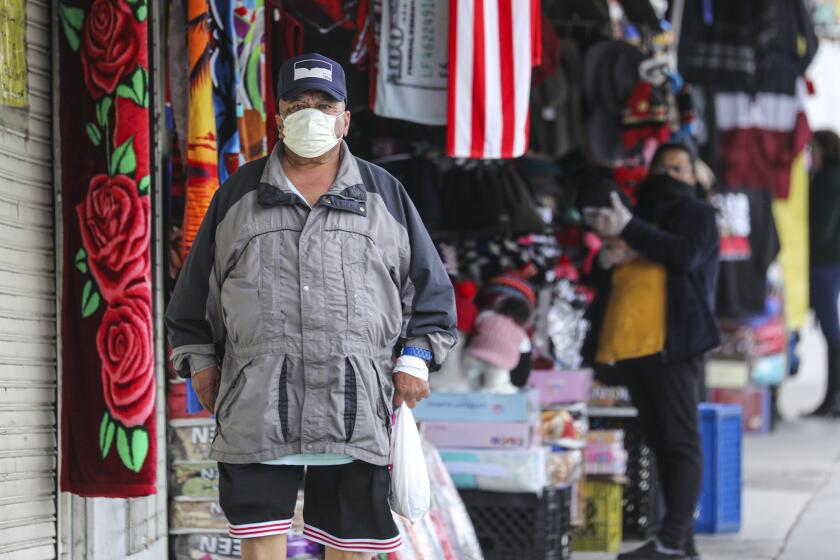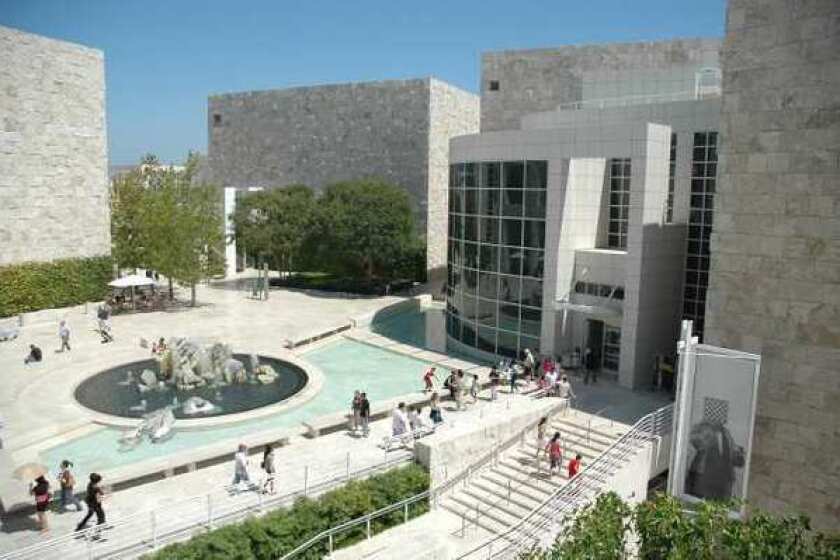For museums, theaters and symphonies, a coronavirus case study in S.F. vs. Seattle
- Share via
The coronavirus is a global phenomenon that requires a local response. For a case study on the different approaches West Coast cities are taking toward slowing its spread, consider the arts in San Francisco and Seattle — only one of which has a symphony orchestra still open for business.
Oddly enough, the place where you can hear Tchaikovsky’s Fifth played live later this week is the place with the country’s highest number of documented coronavirus cases and the most deaths.
In a vivid example of the ad hoc and highly inconsistent way arts organizations are dealing with the spread of the potentially deadly coronavirus, the Seattle Symphony is operating as usual and played to large audiences over the weekend. Meanwhile, the San Francisco Symphony canceled all performances this week and next.
Seattle Symphony officials did say they are monitoring official health advisories, and Washington Gov. Jay Inslee said Sunday that state officials are considering mandatory “social distancing” measures, which could include closing concert halls and theaters.
Get the latest coronavirus updates from our staff in California and around the world.
But it was San Francisco Mayor London Breed who took action over the weekend: On Saturday she ordered a two-week closure of the city-owned complex that includes the War Memorial Opera House and Davies Symphony Hall. The San Francisco Symphony was forced to cancel six performances, including a recital by renowned flutist James Galway.
The San Francisco Ballet opened its production of George Balanchine’s “A Midsummer Night’s Dream” on Friday night, then immediately had to cancel the remainder of the run — the resultant pain presumably amplified by the rave review by Rachel Howard in the San Francisco Chronicle that included the line, “I have rarely witnessed a finer — or more joyous — ensemble triumph.”
Yet just a few blocks away, at the Curran Theatre, performances of the theater hit “Harry Potter and the Cursed Child” are proceeding as usual. In an attempt to comfort patrons, the production said it has placed soap and alcohol-based hand gel throughout the venue and on its website was advising theatergoers, “If you’re not feeling well during a performance, come and talk to one of our staff who can help you.”
ACT, the city’s largest nonprofit theater, used more urgent language on its website. It noted that the city recommended people older than 60 or those with serious medical conditions to stay home.
The Seattle Symphony did “highly encourage those who are at greater risk of illness” to postpone a visit. Seattle Repertory Theatre also had a cautionary message on its website. The Rep said it will email all ticketholders “at least two hours” before a canceled performance — a tacit admission that things can change quickly.
With the exception of the for-profit “Harry Potter,” all of these organizations have instituted lenient ticket-exchange policies to encourage sick or worried people to postpone a visit until later in the season. The usual fees for exchanging tickets are generally being waived.
Art museums in both cities remain open. That includes San Francisco’s DeYoung Museum, Palace of the Legion of Honor and Museum of Modern Art. The Seattle Museum of Art has postponed events such as lectures through the end of the month but otherwise is operating normally. It assures visitors, “We are increasing the frequency cleaning of high-touch and high-traffic areas.”
More hand sanitizers in galleries. More sinks to wash hands. For arts institutions mapping out contingency plans amid the coronavirus crisis, that’s just the start.
Meanwhile, the San Francisco Symphony is looking to get out of town: A long-planned tour of Europe is scheduled to begin March 17. A representative for the orchestra said that as of Monday, those plans are unchanged. But one of the concerts is in Paris, and the French government said Monday it is banning all events with more than 1,000 people. The Cleveland Orchestra announced Monday that its European tour, which was to start on March 16, has been canceled.
In Los Angeles County, where the number of cases rose to 16 on Monday, individual events such as the Nowruz Iranian new year festival at UCLA have been canceled. But museums, theaters and other arts organizations have been largely holding steady, with plans to stay open unless told to do otherwise by county or state health departments or the Centers for Disease Control and Prevention.
More to Read
The biggest entertainment stories
Get our big stories about Hollywood, film, television, music, arts, culture and more right in your inbox as soon as they publish.
You may occasionally receive promotional content from the Los Angeles Times.












